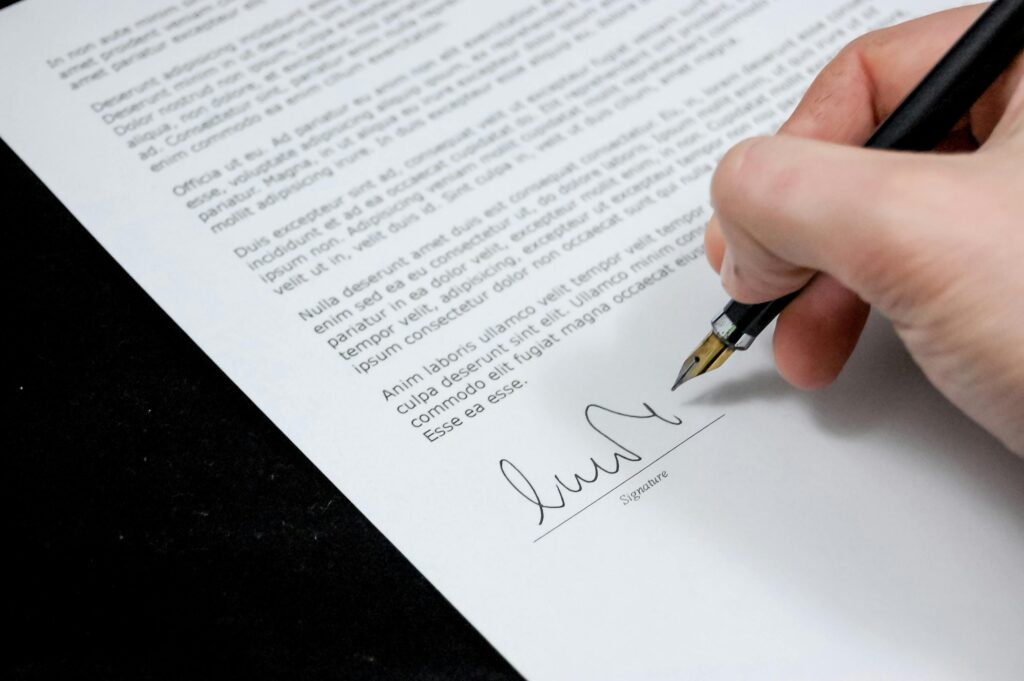How to Write a Character Reference for a Job – Sample Included

Table of Contents
In the competitive landscape of job applications, a strong character reference letter can make a significant difference. This type of letter provides potential employers with insights into a candidate’s character and past behavior, helping them make informed hiring decisions. But what exactly is a character reference letter, and how can you craft one that stands out? In this guide, you’ll discover everything you need to create an impactful character reference letter that supports your application or that of someone you’re vouching for.
What is a Character Reference Letter?
A character reference letter is a document written by someone who knows an individual well, highlighting the person’s character traits, skills, and experiences. Unlike a professional reference, which focuses more on job-related skills, a character reference provides a broader view of the individual’s personality and values.
Importance of a Character Reference Letter
- Humanizes the Candidate: Employers appreciate insights into a candidate’s personality and integrity.
- Demonstrates Soft Skills: Character references often highlight qualities like teamwork, leadership, and reliability.
- Builds Trust: A well-written letter can help establish trust between the candidate and the employer.
When to Request a Character Reference Letter

Understanding when to ask for a character reference letter is essential. Here are some common scenarios:
- Job Applications: Especially when the position emphasizes teamwork and company culture.
- Volunteer Positions: Nonprofits often look for character insights.
- Educational Programs: Schools and universities may request character references to gauge student behavior.
- Legal Situations: In cases like sentencing hearings, character letters can provide context about an individual’s character.
How to Ask for a Character Reference Letter
When requesting a character reference letter, keep these points in mind:
- Choose the Right Person: Select someone who knows you well and can speak to your character genuinely. This could be a teacher, mentor, or colleague.
- Ask Politely: Approach them in person or via email, explaining what you need and why.
- Provide Context: Share details of the job or situation for which the letter is being written.
- Offer Assistance: Provide them with any necessary details they might want to include, such as accomplishments, skills, or traits you’d like emphasized.
Components of a Character Reference Letter
A well-structured character reference letter typically includes the following elements:
1. Contact Information
Include the writer’s name, address, phone number, and email at the top of the letter, followed by the date.
2. Greeting
Use a formal greeting such as “Dear [Name or Hiring Manager]” if the recipient’s name is unknown.
3. Introduction
In the introductory paragraph, the author should state their relationship to the person being referenced and how long they have known them.
4. Body Paragraphs
This section is the heart of the letter. Here, the writer should provide specific examples of the individual’s character and behavior. Key points to mention include:
- Personal Qualities: Traits such as honesty, reliability, and empathy.
- Skills: Describe skills that apply to the job or situation the individual is pursuing.
- Anecdotes: Personal stories that illustrate the character’s strengths.
5. Conclusion
The letter should conclude with a strong recommendation, summarizing why the candidate would be a great addition to the organization or situation.
6. Signature
End the letter with a formal closing statement, such as “Sincerely,” followed by the writer’s name and title.
Sample Character Reference Letter

John Doe
123 Main St.
Anytown, USA 12345
(123) 456-7890
[email protected]
October 1, 2023
Hiring Manager
XYZ Corp
456 Corporate Blvd.
Anytown, USA 12345
Dear Hiring Manager,
I am writing to recommend Jane Smith, whom I have known for the past five years as both a colleague and a friend. In our time working together at ABC Company, Jane consistently demonstrated her strong work ethic and compassion towards others.
Jane is one of the most reliable individuals I have ever worked with. She is punctual and always strives for excellence in every task she undertakes. For example, during a recent project, Jane took the initiative to lead a team that significantly improved production efficiency, earning accolades from upper management. Her analytical skills and attention to detail allowed us to meet our goals well ahead of schedule.
Beyond her professional abilities, Jane is also a person of great integrity. She volunteers weekly at our local animal shelter, showcasing her commitment to helping others and her passion for making a difference in our community. Her kindness and understanding nature make her an excellent team player, and many colleagues, including myself, frequently seek her advice and support.
I wholeheartedly recommend Jane Smith for the position at XYZ Corp. I am confident that her character and skill set would make her a valuable asset to your team.
Sincerely,
John Doe
Project Manager, ABC Company
Tips for Writing an Effective Character Reference Letter

- Be Honest: Authenticity resonates. Avoid exaggerations.
- Stay Positive: Focus on the strengths and potential of the individual.
- Keep it Concise: Aim for a letter length of about one page.
- Proofread: Check for spelling and grammatical errors before sending.
Conclusion
A character reference letter can significantly impact an individual’s job application or other pursuits. By understanding the importance, components, and structure of a character reference letter, you can craft a document that not only highlights the individual’s strengths but also enhances their chances of success.
Whether you’re asking someone for a character reference or crafting one yourself, remember that sincerity and specificity are key. Do you have experience writing or receiving a character reference letter? Share your thoughts or experiences in the comments below!
For more insights on crafting effective reference letters, check out our other resources. If you need help writing your character reference letter or would like to share your experiences, feel free to reach out! Your feedback is always welcome!



